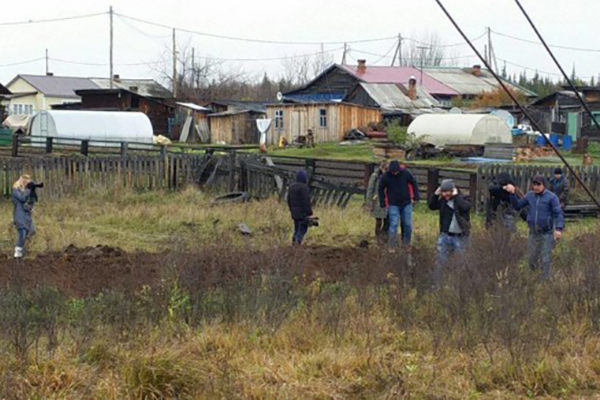The National Library of Moldova for a day became a cinema for dozens of students, historians and teachers who went to see the film “On-board journal: Siberia-Irkutsk”, made under the direction of Violeta Gorgos. The film is the product of a group of Moldovan journalists and historians who started to follow the tracks of Bessarabian deportees in the Russian region Irkutsk three years ago, IPN reports.
Coordinator of the “Memory Expeditions” Octavian Ticu said the project is the result of the preoccupations of historians, and of society too, about a theme that is often treated contradictorily in Moldova. “The film depicts the deportations in a non-traditional way, through the angle of people who were taken to that place and tried to survive there and lost their identity. It is a moment of reflection for all those who watch it. It is a film that lasts for 52 minutes, but has over 14 hours of videoing with many impressions, myths and stereotypes behind it,” he stated.
The film’s director Violeta Gorgos said this is not a traditional film. The potential of the expeditions is reflected in two documentaries that make the “on-board journal” of the “Memory Expeditions”. The protagonists are the participants in these expeditions and the film is made through their eyes. The second part of the film will be broadcast on December 12, on TVR Moldova channel, and will be then available on the Internet too.
Expedition member Alexandru Ghetan said he was impressed by the way in which Moldovans built houses in Siberia. He discovered three types of Moldovans there: those who were deported in the 1940s, those who left in 1960-1970, being corrupted by particular Soviet slogans to go and protest, and Moldovans who left in in the 1990s, who were their support in the expedition.
Maria Butcu, a master’s degree student of the Faculty of History of the State University of Moldova, said the expedition had a large geographical scale. The film destroys stereotypes concerning Siberia among the people. This year the expedition has covered two administrative units of the Russian Federation, with a geographical area of about 1,400 km. The expedition was hosted by the Association of Moldovans in Krasnoyarsk. It consisted of ten persons, four of whom were students.
The project “Memory Expeditions” was initiated in 2013 and is supported by higher education establishments of Moldova and Romania. Its goal is to annually organize expeditions for young historians, journalists and historians by profession to difference places where there are Moldovan-Romanian communities in the post-Soviet area. The project was thought up as an investigation at deportation places and as an applicative study of the way different communities of Moldovans-Romanians in the post-Soviet area reached those places and developed there.

